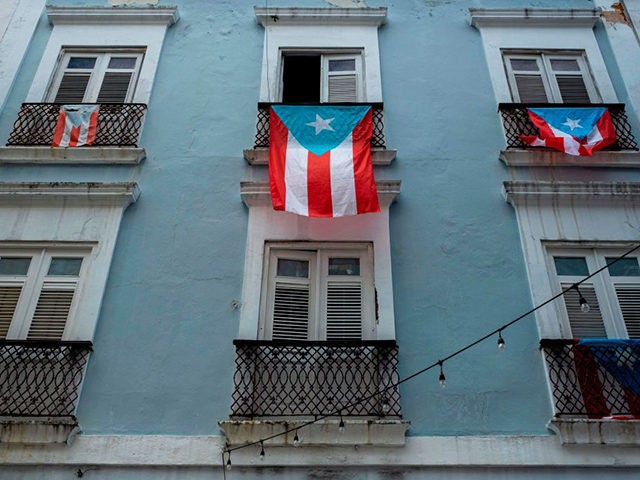Federal Judge William G. Young ruled Monday that it is discriminatory to deny Puerto Ricans access to certain U.S. welfare programs.
Young, in a 70-page ruling detailing his decision on the U.S. federal government refusing to provide Puerto Ricans with access to three key welfare programs — the Supplemental Nutrition Assistance Program (SNAP), Supplemental Security Income (SSI), and Medicare Part D Low-Income Subsidy — stated that the “federal safety net is flimsier and more porous in Puerto Rico than in the rest of the nation.”
“To be blunt, the federal government discriminates against Americans who live in Puerto Rico,” Young wrote, acknowledging the U.S. territory’s 43 percent poverty rate and pointing out that “the nine plaintiffs are poor enough to qualify for at least one of the three federal welfare programs,” according to the AP:
He noted that the Northern Mariana Islands have access to SSI benefits, and Guam and the U.S. Virgin Islands to SNAP, a program that Puerto Rico once had access to until Congress revoked eligibility in 1981. Meanwhile, he said Congress funds substitute programs in Puerto Rico, “but they are less generous by far,” offering less coverage and smaller benefits.
“There is no doubt that the constitutional violations here are systemic,” Young wrote.
The federal government has argued that providing such benefits to citizens residing on the U.S. territory would prove to be far too costly. The government also points to the fact that the island is exempt from paying U.S. federal income tax.
Despite that, Young noted that poor citizens, largely, do not end up paying a personal federal income tax anyway, even on the mainland, effectively dismissing that concern:
He also noted that from 2000 to 2005, Puerto Rico residents paid more in federal taxes than six states and all other U.S. territories combined. In addition, he wrote that in fiscal year 2019, the federal government collected more than $3.5 billion in taxes from Puerto Rico residents.
Young, however, granted the government’s request for a two-month administrative stay of the injunction. In other words, the ruling will only apply, at this time, to the plaintiffs — not across the board.
The federal government is expected to appeal Young’s ruling, which comes as lawmakers continue to debate statehood for Puerto Rico.
The island is expected to hold a nonbinding referendum on statehood in November, asking, “Should Puerto Rico be immediately admitted as a U.S. state?” The referendum would be purely symbolic in nature unless Congress decided to accept the results and act on it.
“Our people will have the opportunity once and for all to define our future,” Gov. Wanda Vázquez Garced (PNP) said earlier this year. “It’s never too late to be treated as equals.”

COMMENTS
Please let us know if you're having issues with commenting.